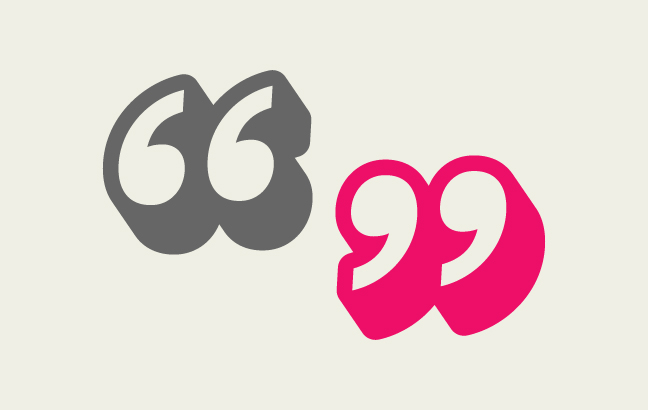
Talking Like Your Customers
Almost every company we work with faces the challenge of dropping their jargon and talking to customers on their terms. Of course this isn’t limited to building websites but because of the way customers use websites it can be critical.
Are you guilty of using language that doesn’t match the expectations of your customers?
Examples:
- “Over 50’s apartments” or “retirement flats”
- “robes” or “wardrobes”
- “click and go” or “trade tarmac supplies”
- “client services” or “employer services”
- “burnt cinder” or “orange”
- “Bacon butty”, “Bacon Bap” or “Bacon Roll”
Where does jargon pop up?
Every industry is guilty of using their technical terms to correctly describe their product and services to educated users. But are your customers as knowledgeable as you?
Is your brand awareness as strong as you think it is? People know what a Dyson is and that 747 is an aeroplane, but is your brand that well know that you can rely on using it alone to market your product?
There are lots of examples of companies inflating their marketing language (using bigger words than they need to) so as to make their product sounds more appealing. “Flats” and “Apartments” is a classic. In so doing they make it harder for customers to find them on the Internet.
Cultural differences can be more pronounced than you think. Different markets, even in the same language, can talk about the same product in many ways.
Why talking like your customer can help
Online marketing often starts when customers search for their problem on Google. They search using the words they use every day. Sometimes they may refine their search to use industry standard terms as they educate themselves and therefore stand a better chance of finding your web site, but it may be too late for you.
If you don’t use the words your customers will be typing into search engines on your web site you won’t be found.
Once a customer finds your website they will explore it, looking for products, reassuring themselves they can do business with you. If they can’t see words they recognise to click on in the navigation they will probably go elsewhere.
Once (if) a customer finds your service they need to commit to calling or emailing you. Will they do this if they don’t understand the service you are offering? Probably not, they will go elsewhere.
How can uc4 help?
Our team covers many disciplines including offline and online marketing, web design, web development and search engine optimisation. We also have experience across a large number of industries and company sizes
Therefore we understand how people use the internet from the beginning to the end of their journey and how to get the best web site, including researching and analysing what language you should be using.
Talking Like Your Customers
Latest posts:
Address
UC4
The Priory
Canwell
Sutton Coldfield
West Midlands
B75 5SH
Contact
- e - [email protected]
- t - 0121 323 3636
Registered in England & Wales no. 3795882
VAT no. 785335108


